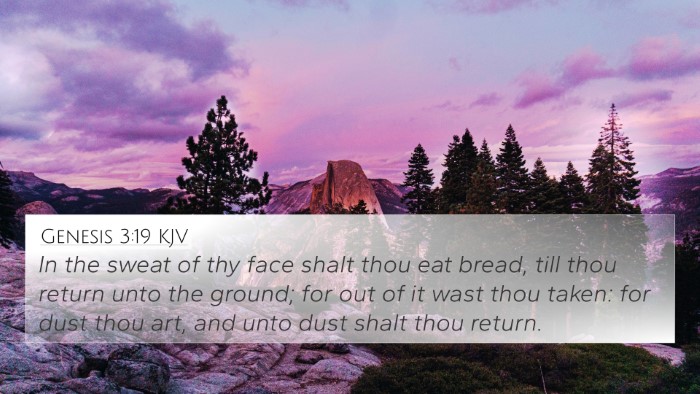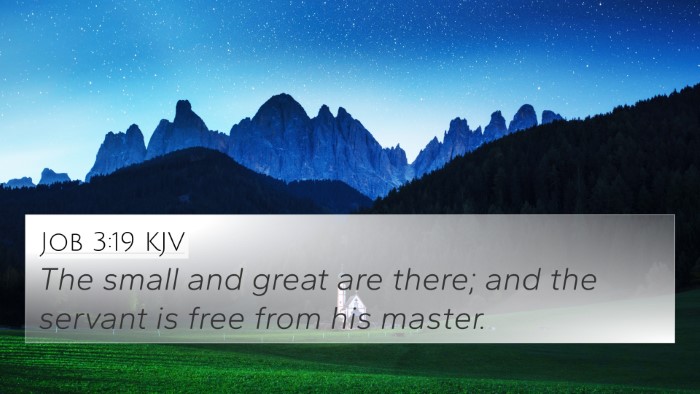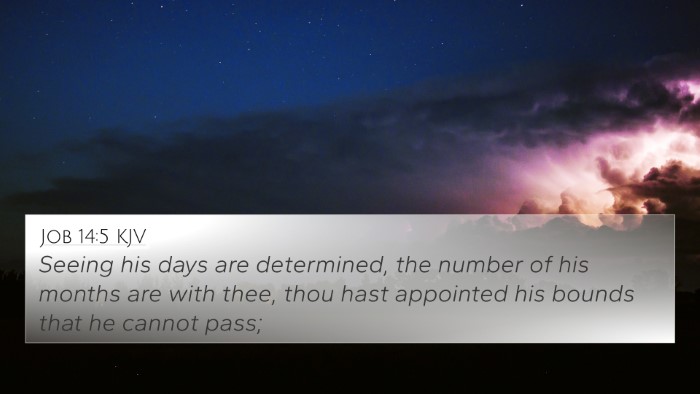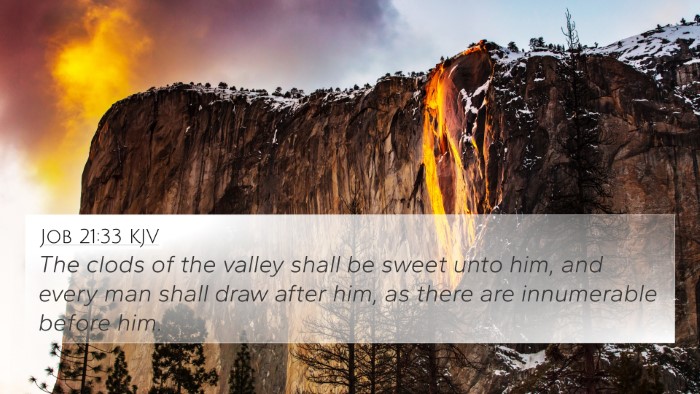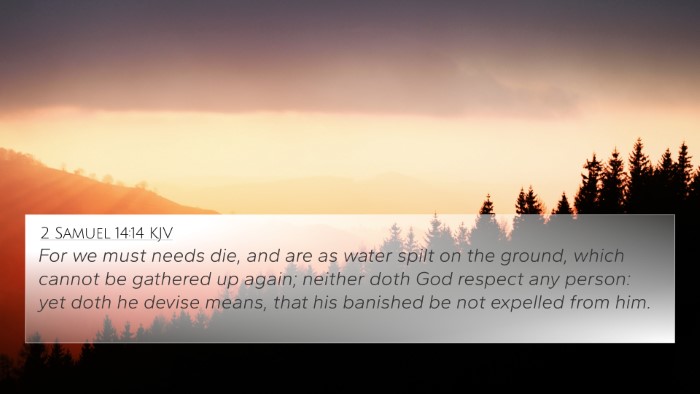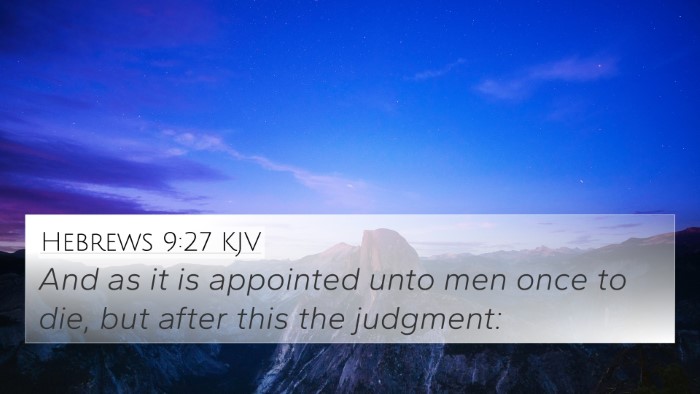Understanding Job 30:23
Job 30:23 reads, "For I know that you will bring me to death, and to the house appointed for all living." This verse encapsulates Job's recognition of the inevitability of death and the reality of human mortality. Below is an analysis combining insights from public domain commentaries, presenting a comprehensive understanding of this passage.
Context of Job 30:23
Job finds himself in a state of profound suffering and alienation. As he speaks, he reflects on his condition and acknowledges God's sovereignty over life and death. This acknowledgment serves as a crucial theme throughout the Book of Job, which deals with suffering, divine justice, and human existence.
Insights from Commentaries
- Matthew Henry: Henry emphasizes the inevitability of death and contrasts it with Job's previous understanding of life. He notes that Job, in his misery, grasps that beyond his present struggles lies the ultimate certainty of mortality, which is a common fate for all.
- Albert Barnes: Barnes discusses the phrase "the house appointed for all living," interpreting it as a metaphor for the grave or the afterlife. He reflects on the universal human experience of death, suggesting that Job's acknowledgment serves as a reminder of our shared destiny.
- Adam Clarke: Clarke expounds on Job's resignation to his fate, pointing out that acceptance of mortality can lead to a deeper understanding of life's challenges. He commits to the truth that death serves as an appointment for every person, urging readers to contemplate their own lives in light of death.
Thematic Connections
Job 30:23 connects to several significant themes found throughout the Bible such as mortality, divine sovereignty, and the nature of suffering. These themes permeate scripture, illustrating the broader narrative of human existence and God's plans.
Cross-References
Here are some relevant Bible cross-references that enhance our understanding of Job 30:23:
- Psalms 90:3: "You turn man to destruction, and say, 'Return, O children of men!'" – This verse echoes a similar sentiment about mortality and the transient nature of life.
- Ecclesiastes 3:2: "A time to be born, and a time to die; a time to plant, and a time to pluck up what is planted." – Acknowledges the cycles of life and death, directly relating to Job's realization.
- Hebrews 9:27: "And as it is appointed for men to die once, but after this the judgment." – Highlights the inevitability of death and the appointment set by God for all humanity.
- Genesis 3:19: "For you are dust, and to dust you shall return." – This statement by God about man's origin reinforces the biblical teaching on the mortality of human beings.
- Job 14:5: "Since his days are determined, the number of his months is with you; you have appointed his limits, so that he cannot pass." – Job explicitly recognizes God's control over the length of life.
- John 11:25-26: "Jesus said to her, 'I am the resurrection and the life...'" – This New Testament passage gives hope about life after death, contrasting Job's despair with New Testament assurance.
- 1 Peter 1:24: "For 'All flesh is like grass and all its glory like the flower of grass.' The grass withers, and the flower falls." – Indicates the fleeting nature of life which ties closely with Job's understanding of mortality.
The Importance of Mortality in Scripture
Understanding Job 30:23 within the broader biblical narrative helps illuminate several fundamental lessons:
- Human Limitations: The acceptance of death illuminates our limitations and the transitory nature of earthly life.
- Hope Beyond Death: While Job expresses despair, the Christian perspective brings hope through resurrection and eternal life.
- Call to Reflection: This verse encourages believers to consider their own lives and the significance of their actions in light of eternity.
Using Cross-References for Deeper Understanding
Engaging with cross-references and thematic connections can deepen one's understanding of complex verses like Job 30:23. Here are some tools and insights for effective cross-referencing:
- Bible Concordance: A concordance can be an essential tool for identifying related verses and themes.
- Bible Cross-Reference Guides: These guides can aid in systematically exploring connections between scriptures.
- Cross-Referencing Methods: Utilize maps, charts, and other methods to visualize the links between various biblical texts.
Conclusion
Job 30:23 serves as a poignant reminder of life's fragility and the certainty of death. By utilizing inter-Biblical dialogue through scriptural cross-referencing, believers can cultivate a richer understanding of the text and apply its profound truths to their lives. With the insights drawn from public domain commentaries, Christians can appreciate the theological depth that underpins Job's lament and its relevance in the overarching biblical narrative.




